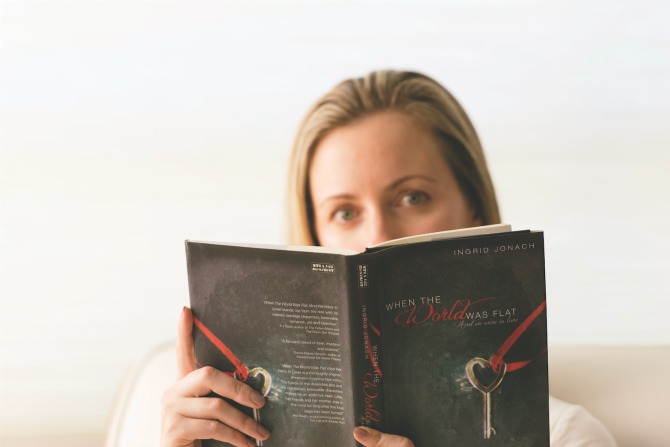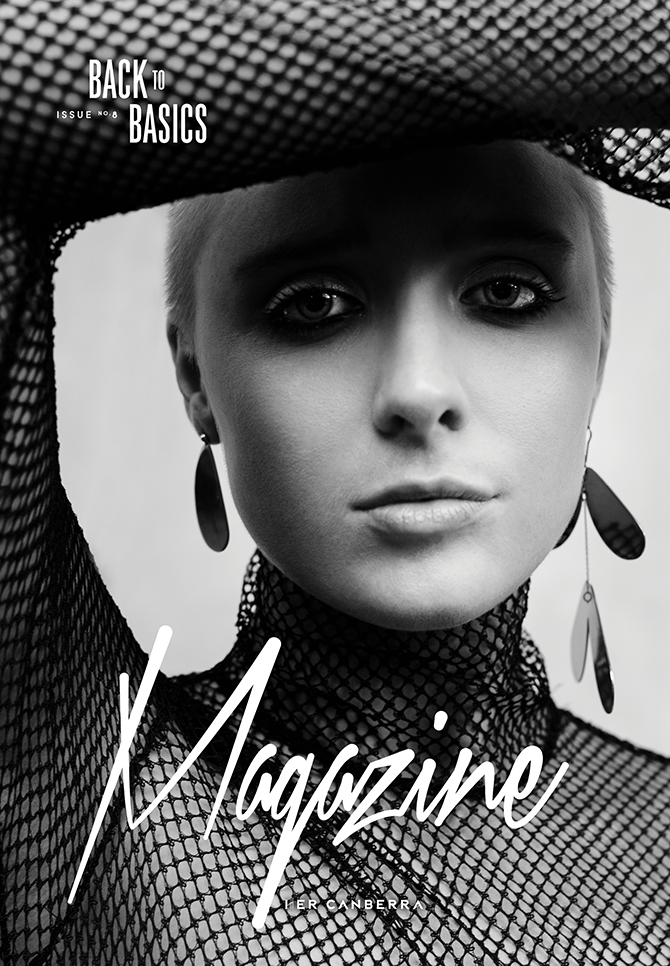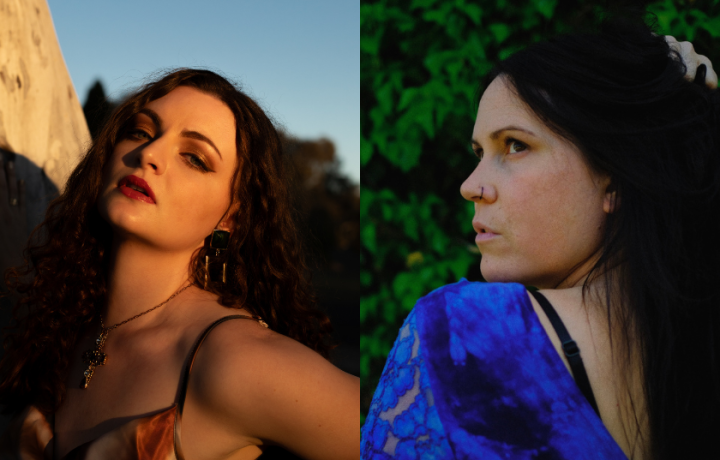Women Who Write: Ingrid Jonach

Posted on
It’s a deeply personal creative expression, an often solitary pursuit and a foray into a competitive market littered with failure.
But it’s also an old and cherished art – introducing children to fiction through words and pictures.
Three Canberra women are making it in the world of publishing, trying to ensure the written word will always hold appeal for children and that books—and not iPads—are the ultimate vehicle for imagination.
~
Ingrid Jonach is completely obsessed with writing and has been publishing her work regularly since she first made it into the school yearbook at the tender age of seven.
She received a two-book publishing deal with Pan Macmillan for her two children’s books The Frank Frankie and Frankie goes to France and was represented by a US agent for her debut young adult science-fiction romance novel When The World Was Flat (and we were in love) which now has a sequel In The Beginning There Was Us.

WHEN DID YOU FIRST FALL IN LOVE WITH READING?
My first memory of reading was with my grandfather. We had an almost daily routine of him reading me The Three Little Pigs, while I sat on the back of his armchair.
My mum also heavily encouraged it with a rule that we could stay up an extra half an hour at night if we were reading. We also visited the library weekly and it always felt like Christmas had come early when I walked out with my bulging book bag.
WHAT MADE YOU DECIDE TO START WRITING PROFESSIONALLY?
I think it was less of a decision and more of an evolution.
I started writing from a very young age. My first published work was a retake on the poem There Was an Old Lady Who Swallowed a Fly which was published in the school yearbook when I was in Year Two. I was hooked! I filled copious notebooks with all kinds of stories about teddy bears and monkeys and fairies.
Throughout all of these years, I had no idea that writing could actually be a profession, even though I was blessed with a best-selling author as a cousin (Di Morrissey, who has been a tremendous inspiration). My hand was forced, however, when I had to decide what to study at university after high school. I decided on a Bachelor of Arts in Professional Writing at the University of Canberra but the universe had other plans —and through a series of accidents I ended up studying Journalism as a minor and landed a casual position with The Canberra Times. I was given a cadetship in my Honours year at university.
Rather unsurprisingly, given my profession at the time, I wrote a story about a young girl who starts her own newspaper. To my surprise, I managed to land a two-book deal with Pan Macmillan. I guess that was when I realised I was no longer writing just for myself, but was approaching it as a job. I’ve actually just started a blog called Write All the Books with the intention of sharing everything I know about both the creative and business side of writing, to pay it forward.

WHAT ARE THE PROS AND CONS OF E-BOOKS?
I admit to being one of those people who said they would never read eBooks. I love being able to hold a book in my hands. The more scrappy my books, the more well-loved they are, in my opinion. I have no hesitation in dog-earring pages and my favourite novel is even missing its cover.
I also have mixed views on the effectiveness of eBooks for young children. I think the tactile experience is still vitally important at that age. My young adult books, on the other hand, are probably just as effective as an eBook.
I find them much more convenient than print books – you can literally carry around a whole library in your handbag and when you finish one read you can immediately purchase your next one, even at 1am.
DO YOU THINK BOOKS PROVIDE A BRIDGE BETWEEN WORDS AND ELECTRONICS? WHAT DO YOU SAY TO PURISTS WHO ONLY LIKE INK AND PAPER?
I think eBooks are definitely the preferred option for certain age groups or lifestyles. Smart devices are now just part and parcel of daily life for most people – particularly the latest generations who have grown up with them.
I don’t think it’s too much of a stretch to say that using these devices— through constant texting or tweeting or status updates—will evolve the way we converse. I think, as a result, the English we use in 100 years will be dramatically different to the English we use today.
Images by Martin Ollman
This article originally appeared as part of our ‘Women Who Write’ article in Magazine: Back to Basics for Autumn 2017, available for free while stocks last. Find out more about Magazine here.



Leave a Reply
You must be logged in to post a comment.